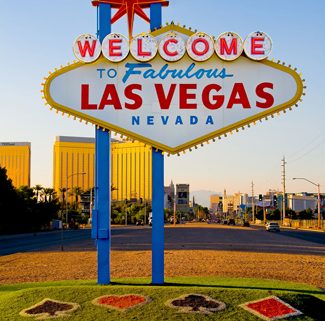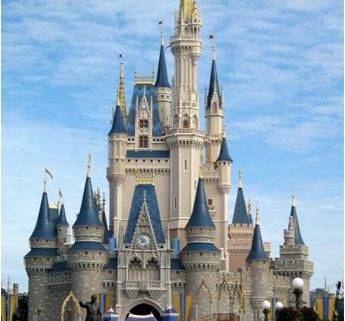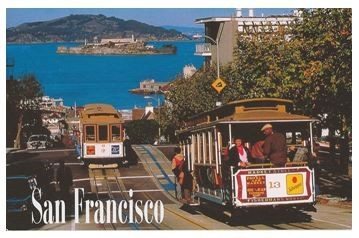Global Market Comments
March 7, 2014
Fiat Lux
Featured Trade:
(MARCH 12 GLOBAL STRATEGY WEBINAR)
(LAS VEGAS WEDNESDAY, MAY 14 GLOBAL STRAGEGY LUNCHEON),
(TESTIMONIAL),
(REPORT FROM AUSTRALIA)
Las Vegas Wednesday, May 14 Global Strategy Luncheon
Come join me for lunch for the Mad Hedge Fund Trader?s Global Strategy Update, which I will be conducting in Las Vegas, Nevada on Wednesday, May 14. A three-course lunch will be followed by a PowerPoint presentation and an extended question and answer period.
I?ll be giving you my up to date view on stocks, bonds, foreign currencies, commodities, precious metals, and real estate. And to keep you in suspense, I?ll be throwing a few surprises out there too. Enough charts, tables, graphs, and statistics will be thrown at you to keep your ears ringing for a week. Tickets are available for $218.
I?ll be arriving at 11:00 and leaving late in case anyone wants to have a one on one discussion, or just sit around and chew the fat about the financial markets.
The lunch will be held at a top restaurant at a major Strip casino. The exact location will be emailed with your purchase confirmation.
I look forward to meeting you, and thank you for supporting my research. To purchase tickets for the luncheons, please go to my online store.
Global Market Comments
March 6, 2014
Fiat Lux
Featured Trade:
(ORLANDO FLORIDA SATURDAY, MAY 17 GLOBAL STRAGEGY LUNCHEON),
(A SPECIAL OFFER FOR AUSTRALIAN SUBSCRIBERS),
(IT?S PEDAL TO THE METAL ONCE AGAIN),
(SPY), (IWM), (DAL), (GE), (EBAY), (GILD), (GS), (BAC), (DBA)
SPDR S&P 500 (SPY)
iShares Russell 2000 (IWM)
Delta Air Lines Inc. (DAL)
General Electric Company (GE)
eBay Inc. (EBAY)
Gilead Sciences Inc. (GILD)
The Goldman Sachs Group, Inc. (GS)
Bank of America Corporation (BAC)
PowerShares DB Agriculture (DBA)
Come join me for lunch for the Mad Hedge Fund Trader?s Global Strategy Update, which I will be conducting in Orlando, Florida on Saturday, May 17. A three-course lunch will be followed by a PowerPoint presentation and an extended question and answer period.
I?ll be giving you my up to date view on stocks, bonds, foreign currencies, commodities, precious metals, and real estate. And to keep you in suspense, I?ll be throwing a few surprises out there too. Enough charts, tables, graphs, and statistics will be thrown at you to keep your ears ringing for a week. Tickets are available for $228.
I?ll be arriving at 11:30 and leaving late in case anyone wants to have a one on one discussion, or just sit around and chew the fat about the financial markets.
The lunch will be held at a major resort hotel 20 miles to the southwest of the city.? The exact location will be emailed with your purchase confirmation.
I look forward to meeting you, and thank you for supporting my research. To purchase tickets for the luncheons, please go to my online store.
Executing the Mad Hedge Fund Trader?s Trade Alerts from the other side of the world can pose some annoying challenges. After speaking with many of my Australian followers on my recent trip down under, I learned of the obstacles presented by distant time zones, dealing in foreign currencies, regulations, and obtaining live customer support.
I want to make my service easy for everyone to follow. Execution of my Trade Alerts should never be an issue. The Mad Hedge Fund Trader has therefore tied up with Halifax Investment Services Limited, an established local broker, to provide support and execution serves for my Australian followers.
Halifax possesses an Australian Financial Services (AFS) License from the Australian Securities & Investments Commission to provide brokerage and custody services. It is a member of the Australian Stock Exchange. It has a relationship with the American firm, Interactive Brokers, which gives it access to state of the art online executive at competitive commissions.
Halifax can open trading accounts, Self-managed superannuation funds, or any other type of account. It also offers a wealth of educational resources you can use to improve your own trading performance.
If you open a brokerage account with Halifax they will provide the following for you:
1) Custody of your Australian dollar funds in a safe, segregated account.
2) Personal customer support from a professional financial advisor in your time zone who will explain the fundamentals, the logic, and the risks involved in every Mad Hedge Fund Trader Trade Alert. They will invest the time and energy to make sure you can execute these trades online on your own.
3) The ability to hedge out foreign currency risks in your trading.
4) Halifax can execute the full range of trades recommended by the Mad Hedge Fund Trader with the greatest of ease. These include stocks, bonds, commodities, foreign currencies, precious metals, exchange traded funds (ETF?s), options, and option call and put spreads.
Halifax is a well-capitalized firm. It does not engage in any trading for its own account. It is the subject of regular audits by its regulator. All cash accounts are insured in value up to AUS$250,000. In other words, it is a financial institution where you can place you life savings and sleep well at night.
To avail yourselves of these services, please open an account with Halifax Investment Services Ltd. by clicking the following: ?http://madhedgefundradio.com/hisl-australia/. Scroll down to complete a form with your basic information. Within a few days, you should receive a phone call from a Halifax financial advisor who has been assigned to provide you assistance.
Good Luck and good trading!
Global Market Comments
March 5, 2014
Fiat Lux
Featured Trade:
(CHICAGO FRIDAY, MAY 23 GLOBAL STRAGEGY LUNCHEON),
(LUCKY FIND SPARKS NEW CALIFORNIA GOLD RUSH), (GLD),
(THE DIFFERENCE BETWEEN MAD HEDGE FUND TRADER AND MAD DAY FUND TRADER),
(THE NEW CALIFORNIA GOLD RUSH)
Come join me for lunch for the Mad Hedge Fund Trader?s Global Strategy Update, which I will be conducting in Chicago on Friday, May 23. A three-course lunch will be followed by a PowerPoint presentation and an extended question and answer period.
I?ll be giving you my up to date view on stocks, bonds, foreign currencies, commodities, precious metals, and real estate. And to keep you in suspense, I?ll be throwing a few surprises out there too. Enough charts, tables, graphs, and statistics will be thrown at you to keep your ears ringing for a week. Tickets are available for $238.
I?ll be arriving an hour early and leaving late in case anyone wants to have a one on one discussion, or just sit around and chew the fat about the financial markets.
The lunch will be held at a downtown Chicago venue on Monroe Street that will be emailed with your purchase confirmation.
I look forward to meeting you, and thank you for supporting my research. To purchase tickets for the luncheons, please go to my online store.
Global Market Comments
March 4, 2014
Fiat Lux
Featured Trade:
(FRIDAY APRIL 25 SAN FRANCISCO STRATEGY LUNCHEON)
(THE NEW WAR IN THE UKRAINE),
(RSX), (USO), ($BRENT), (WEAT), (UNG), (EEM),
(TIME TO SELL THE TREASURY MARKET SHORT),
(TLT), (TBT)
Market Vectors Russia ETF (RSX)
United States Oil (USO)
Brent Crude OiL-Spot Price(EOD) ICE ($BRENT)
Teucrium Wheat (WEAT)
United States Natural Gas (UNG)
iShares MSCI Emerging Markets (EEM)
iShares 20+ Year Treasury Bond (TLT)
ProShares UltraShort 20+ Year Treasury (TBT)
Come join me for lunch at the Mad Hedge Fund Trader?s Global Strategy Update, which I will be conducting in San Francisco on Friday, April 25, 2014. An excellent meal will be followed by a wide-ranging discussion and an extended question and answer period.
I?ll be giving you my up to date view on stocks, bonds, currencies, commodities, precious metals, and real estate. And to keep you in suspense, I?ll be throwing a few surprises out there too. Tickets are available for $179.
I?ll be arriving at 11:00 and leaving late in case anyone wants to have a one on one discussion, or just sit around and chew the fat about the financial markets.
The lunch will be held at a private club in downtown San Francisco near Union Square that will be emailed with your purchase confirmation.
I look forward to meeting you, and thank you for supporting my research. To purchase tickets for the luncheons, please go to my online store.
Global Market Comments
March 3, 2014
Fiat Lux
Featured Trade:
(FRIDAY APRIL 4 INCLINE VILLAGE, NEVADA STRATEGY LUNCHEON),
(ALL ASSET CLASS RISK REVERSAL AT HAND),
(SPY), (EEM), (TLT), (VXX), (FXY), (YCS), (FXE), (UUP),
(WHY WATER WILL SOON BE WORTH MORE THAN OIL),
(CGW), (PHO), (FIW), (VE), (TTEK), (PNR),
(TESTIMONIAL)
SPDR S&P 500 (SPY)
iShares MSCI Emerging Markets (EEM)
iShares 20+ Year Treasury Bond (TLT)
iPath S&P 500 VIX ST Futures ETN (VXX)
CurrencyShares Japanese Yen Trust (FXY)
ProShares UltraShort Yen (YCS)
CurrencyShares Euro Trust (FXE)
PowerShares DB US Dollar Index Bullish (UUP)
Guggenheim S&P Global Water Index (CGW)
PowerShares Water Resources (PHO)
First Trust ISE Water Idx (FIW)
Veolia Environnement S.A. (VE)
Tetra Tech Inc. (TTEK)
Pentair Ltd. (PNR)
Legal Disclaimer
There is a very high degree of risk involved in trading. Past results are not indicative of future returns. MadHedgeFundTrader.com and all individuals affiliated with this site assume no responsibilities for your trading and investment results. The indicators, strategies, columns, articles and all other features are for educational purposes only and should not be construed as investment advice. Information for futures trading observations are obtained from sources believed to be reliable, but we do not warrant its completeness or accuracy, or warrant any results from the use of the information. Your use of the trading observations is entirely at your own risk and it is your sole responsibility to evaluate the accuracy, completeness and usefulness of the information. You must assess the risk of any trade with your broker and make your own independent decisions regarding any securities mentioned herein. Affiliates of MadHedgeFundTrader.com may have a position or effect transactions in the securities described herein (or options thereon) and/or otherwise employ trading strategies that may be consistent or inconsistent with the provided strategies.










